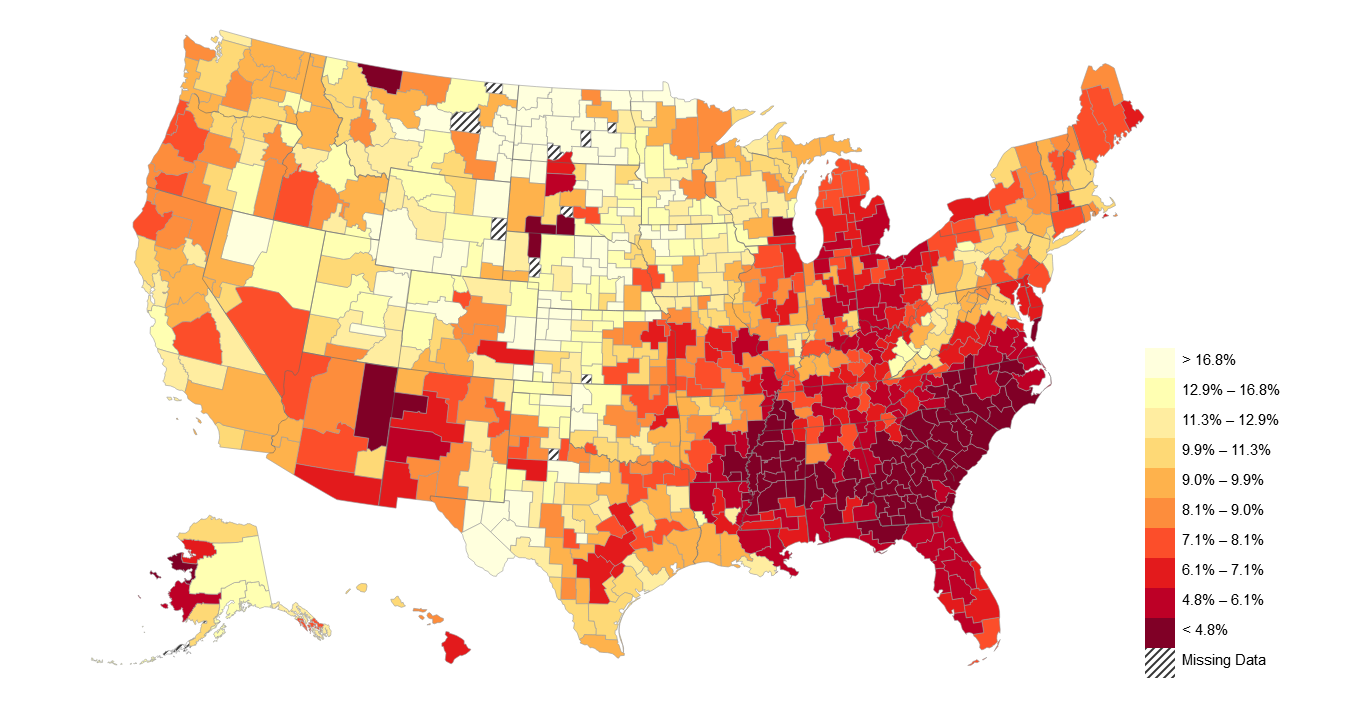Quote:
Originally Posted by IWant2BeInSTL

I'm not sure what I've said thus far that would suggest that I either agree or disagree with you. I'm not even sure how my one-line comment about Arkansas having nice natural amenities managed to set you off on a multi-paragraph tirade about how
and also
So, high-income professionals shouldn't move to rural or working-class small towns (in the South and Midwest in particular—not that they would anyway, duh, because those places are all terrible, obviously) because service workers would then be forced at gunpoint to follow them to places where backwards Southerners and Midwesterners will treat them poorly? Meanwhile, service workers are all well-paid and treated like royalty in urban areas and their kids all attend top-notch schools. Turns out I probably don't agree with you.
|
Your mis-characterization of my argument by adding your own adjectives(move at "gunpoint", "treated like royalty", "top notch schools") does not prove me wrong. I never said that people would be pushed to move, or that they had it really good where they are now. Just that they have it somewhat less bad, and a decline in jobs erodes the desire to live in a place over time leading to population loss.
While wages after cost of living and the quality of public schools are obviously terrible in the classic "urban ghettoes" and some big cities show up red on this map, in general most metro areas are better places to be than the south.
One of the interesting things this map also shows that rural areas in the plains midwest actually score the best. I just don't foresee coastal wall street or silicon valley types moving Grand Island or Scottsbluff.
http://www.equality-of-opportunity.org/neighborhoods/
Source: Equality of Opportunity Project, found on the page linked above.

Quote:
|
Yeah, I don't understand that argument. In the rural area in which I now live, there's much higher unemployment (perennially, not talking about COVID-19 here) than in the city I just left. It's much more likely that a previously jobless local would get one of those service jobs, should they start hiring people for such things, than for some fast-food worker to also move here from hundreds of miles away.
|
A long-term trend doesn't require the service worker from California to move to Arkansas next week. Eventually the jobless locals would get jobs, slowly. Migration would come from all over the US.
I would guess things would be similar to the decline of industry in the Rust Belt and relative increase in industry in the south. This didn't happen overnight nor did all the workers in Alabama come from Michigan. And there is a third variable of overseas outsourcing. But that doesn't disprove the real world outcome. In general you could accurately say that differences in going wages, unions, taxation, and regulations between states has led to a shift in industrial jobs to locations where the workers earn less, work longer shifts, face greater safety hazards on the job, and live in communities where other needs like healthcare and education are lower quality.
A rise in remote work would cause a similar race-to-the-bottom for the service industry due to the indirect movement of white-collar professionals.



